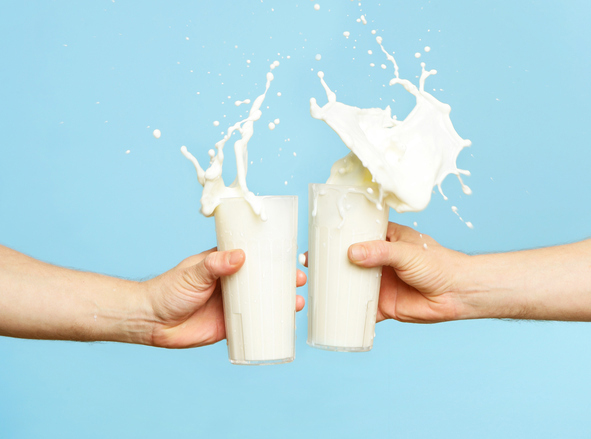Dairy free diets are followed by a fifth of Britons who believe they have an intolerance to dairy. However scientists have discovered why sufferers may struggle with cow’s milk – and it’s not due to lactose.

Dairy free diets have become popular of late thanks to the trend for vegan eating, and because one in five Britons claim they struggle with milk.
Many of these people believe they are lactose intolerant, meaning that they are unable to fully digest a sugar – known as lactase – found in milk.
However, many people aren’t intolerant to lactose but still struggle to digest milk, and scientists have discovered in a new study why this could be.
Research published today in the Nutrition Journal revealed that the A1 protein, found in cow’s milk, was to blame for triggering symptoms of milk intolerance.
Scientists discovered that by removing the A1 beta casein protein, leaving just the A2 beta casein, sufferers were able to drink milk without gastrointestinal symptoms.

“This is the largest human trial to date examining the differences between the impact of the A1 and A2 protein,” said Dr Anton Emmanuel, consultant gastroenterologist.
“It suggests that proteins found in dairy can have a significant impact on digestion, and that lactose may not be the only cause of gastrointestinal issues in those with an intolerance – around 60 per cent of the world’s population.”
Researchers concluded that for many people with milk intolerance it is not lactose causing the issue, but the A1 protein.
“This exciting new research on such a large sample is significant in that it suggests that many patients’ issues with dairy may in fact be specific to the A1 milk protein that is found in regular cows’ milk,” explained Dr Anthony Hobson, clinical director of the Functional Gut Clinic.
“A simple switch to milk containing only the A2 protein could be an important part of symptom management for those suffering from milk intolerance.
“Patients often come to us convinced that their digestive troubles are due to lactose intolerance – there is a lot of self-diagnosis taking place.
“When we then test them for the condition and it comes back negative, they are lost as to what else the problem could be – but this could explain it.”

In the study, 1,200 people who considered themselves to have lactose intolerance drunk milk containing only A2 beta casein, called a2 Milk.
They discovered that while people who drunk regular milk experienced “acute” symptoms often associated with milk intolerance, they showed improvements when they consumed the A2 milk.
Signs of milk intolerance include bloating, gas, pain in the lower belly, diarrhoea and throwing up.
Source: Express.
